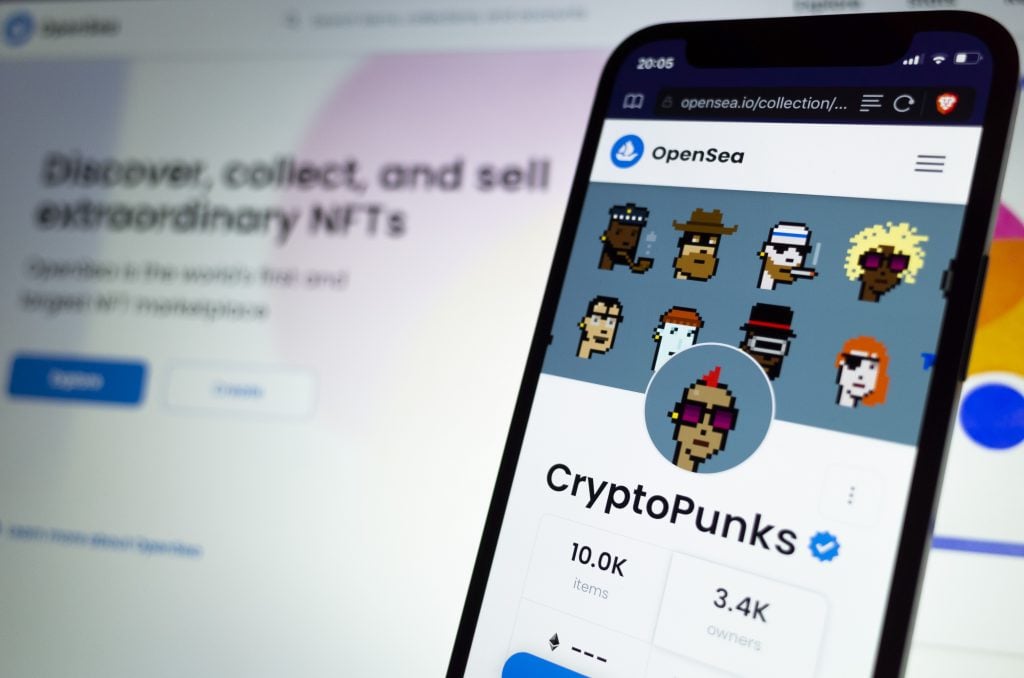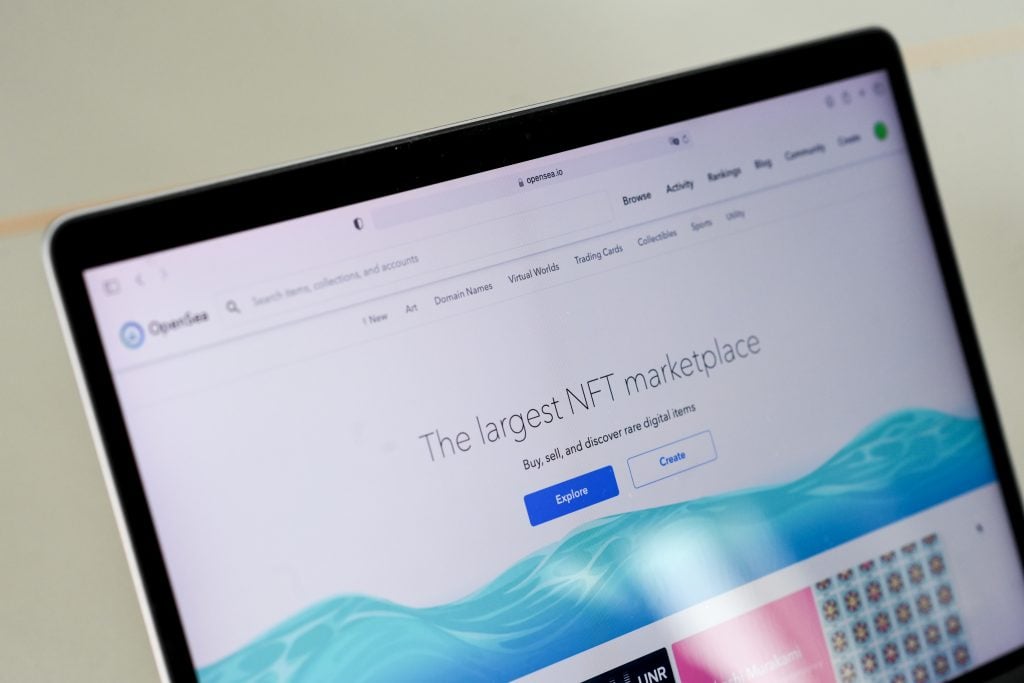Law & Politics
NFT Marketplace OpenSea Prepares for Legal Battle Following SEC Notice
The regulation of NFTs has been hotly debated.

The regulation of NFTs has been hotly debated.

Jo Lawson-Tancred

Attempts by the U.S. Securities and Exchange Commission (SEC) to regulate the crypto industry show no signs of letting up. Devin Finzer, CEO of the popular NFT marketplace OpenSea, claimed he was “shocked” to discover that the agency is threatening to sue the company over the sale of unregistered securities. In this case, digital assets like art and other collectibles.
In a post on X last week, Finzer explained that the company has received a Wells notice from the SEC, a type of warning that the agency issues to alert the recipient to charges it intends to bring against them. As his post suggested, the classification of NFTs as securities is controversial, and Finzer promised OpenSea would “stand our own ground” if further action is taken.
“This is a move into uncharted territory,” he said. “We should not regulate digital art in the same way we regulate collateralized debt obligations.”
He added: “NFTs are fundamentally creative goods: art, collectibles, video game items, domain names, event tickets, and more.”
The SEC declined to comment on the alleged investigation. The federal agency has routinely brought enforcement actions against the crypto industry, targeting currency trading platforms like Kraken, Coinbase, and, most recently, Abra.

A screen shows the website OpenSea, where digital artworks are sold using NFT. NFT provides digital artworks with a certificate of authenticity. NFTs, Non-Fungible Tokens, are unique cryptographic credentials that are written to the blockchain attached to a file (image, music, video) and cannot be manipulated. Photo: Jens Kalaene/dpa-Zentralbild/ZB via Getty Images.
In 2022, the SEC also began investigating the sale of NFTs, reportedly issuing subpoenas in order to determine whether these tokens can be classed as securities. This would make them subject to the same regulations as any other stock. That year, the agency investigated Yuga Labs, the company behind the Bored Ape Yacht Club collection of avatars sold as NFTs, according to Bloomberg.
Last year, it charged the company Impact Theory, LLC with selling NFTs to investors that “were investment contracts and therefore securities,” so violating federal law. It also charged the NFT company Stoner Cats. Both cases were eventually settled.
“Classifying NFTs as securities would not only misinterpret the law, but it would also jeopardize artists’ livelihoods, disempower collectors and gamers, and stifle innovation across the many promising use cases for NFTs,” Finzer said in a longer statement on OpenSea’s website.
In response to the case brought against OpenSea, Stuart Alderoty, the chief legal officer for the cryptocurrency platform Ripple, noted on X that in 1976, the SEC decided that art galleries would not need to register artworks it planned to sell. It even allowed that “the Gallery is aware of the fact that art may be purchased for various reasons, such as for its aesthetic value, its investment potential, or for tax reasons.”
Fun fact: In 1976, the SEC ruled that art galleries, even when promoting and selling to buyers that had investment motives, didn’t need to register with the SEC. https://t.co/CtQJ3mlPkh pic.twitter.com/oR8EgGpXoo
— Stuart Alderoty (@s_alderoty) August 29, 2024
The 1976 document, shared by Alderoty, outlines the SEC’s response to an art gallery’s proposed sale of lithographs. The agency said that it would not recommend enforcement action if the lithographs were sold without registering them as securities.
Earlier this summer, two artists Jonathan Mann and Brian L. Frye filed a lawsuit against the SEC, challenging its authority to regulate NFTs. The suit claimed that the SEC has “begun to wage a campaign to assert jurisdiction over sales of digital art, which should ring alarm bells for every artist and patron in America.”
Asking for a declaratory judgement rather than a trial, it proposed many broader questions, such as: “Should artists be forced to make public disclosures about the ‘risks’ of buying their art? Should artists be required to comply with the federal securities laws, and the thousands of regulations and reams of interpretive guidance thereunder, just to offer their works to the public? Or can artists simply create, and sell, art?”
Finzer also announced that OpenSea will pledge $5 million towards the legal fees for any NFT creators who also receive Wells notices. “Every creator, big or small, should be able to innovate without fear,” he said.